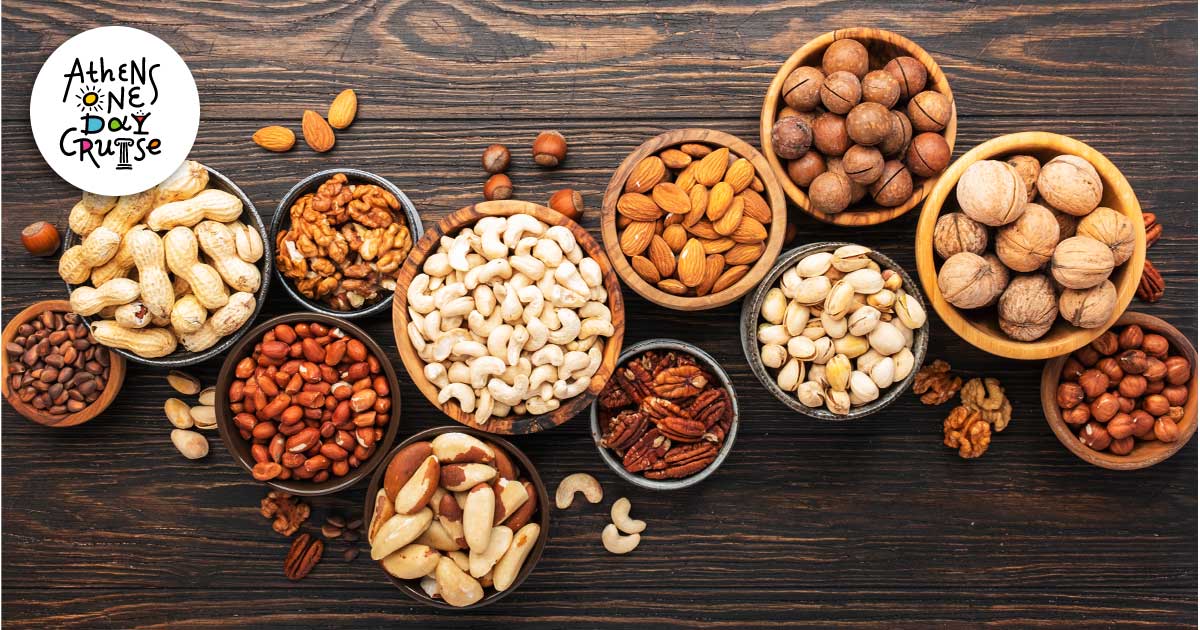
Nuts from Greece
The Greek economy for many years relied on agriculture, livestock and of course tourism. Over the years, landowners have turned to different, more productive crops. Nuts from Greece are exported to many countries. The first preference is the pistachios of Aegina. Next are walnuts, almonds, sesame seeds and chestnuts. All of the above are rich sources of nutrients, necessary for a balanced diet.
Pistachios from Aegina
It is the traditional fruit of Aegina, which in 1996 registered its designation of origin. Aegina pistachios are rich in the antioxidant ingredients lutein and zeaxanthin that help in good eyesight. 30 grams of pistachios contain 159 calories, 12.8 grams of fat, 7.7 grams of carbohydrates, 2.1 grams of sugar, 3 grams of fiber, 5.7 grams of protein and no sodium.
Walnuts
The ancients called them "royal nuts". It was believed that when Jupiter descended to earth he ate nuts to give him more strength and wisdom. Their first cultivation is attributed to the ancient Greeks. Walnuts are a very good source of omega-3 fatty acids, which protect against heart disease. They have more fat than other nuts, but they are good fats. Also, walnuts cause rapid satiety. They have a lot of calories, just 30 grams give 220 calories, 22 grams of fat, 5 grams of carbohydrates, 1 gram of sugar, 2 grams of fiber and 5 grams of protein.
Almonds
Almonds are a healthy snack. They contain vitamin E, protein, carbohydrates, fiber and magnesium. Almonds help reduce the risk of diabetes and heart disease. The recommended daily intake is 10-12 almonds, as just 100 grams provide about 575 calories.
Sesame seeds
The ancient Greeks used sesame seeds to make pastel. The most Greek pastel is the first energy bar ever made. Because it is invigorating, it was considered an ideal food for warriors. The pastel was made and is still made by mixing sesame with honey. They divided it into thin layers and baked it. It is an easy snack that we can have with us everywhere.
Chestnuts
Chestnuts are rich in vitamin C and many people are not aware of this. In fact, half a cup of raw chestnuts provide up to 45% of the recommended daily allowance of vitamin C. However, some of the vitamin is lost when the chestnuts are boiled or cooked. They also contain vitamins A and E and B vitamins, magnesium, manganese, calcium, iron and zinc. They are a good source of antioxidants, which are not lost when the chestnuts are boiled or cooked. A quarter cup of roasted chestnuts has 88 calories and one gram of fat, carbohydrates and protein.
Tags: Pistachio, nutrition, Mediterranean diet, nuts

